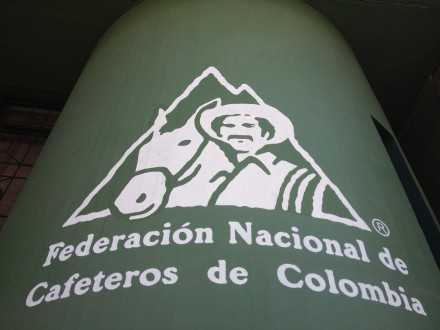BOGOTÁ, Colombia – In 2019, the country’s 33 cooperatives acquired 31% of the coffee produced in Colombia and allocated COP 48.8 billion (USD 14.8 million) to social investment, confirming them as key links in the marketing chain, for the benefit of producers.
The amount of social investment, equivalent to having paid an additional COP 18,043 (USD 5.5) per load (125 kg) of all the coffee they purchased, was allocated to items such as formal and non-formal education, the Periodic Economic Benefits (BEPS) program, environment, and production infrastructure, with both its own resources and those from the FLO (fair trade) social premium.
Cooperatives are part of the marketing chain of the Colombian Coffee Growers Federation (FNC) and key partners in the exercise of the purchase guarantee, the public good most valued by producers.
Through a network of 525 points of purchase, last year they acquired 338 million kg of dry parchment coffee (dpc), 6% more than the 319 million kg of dpc acquired in 2018.
For this volume they paid COP 2.6 trillion (USD 792.4 million), 27% of which through the financing line of the National Coffee Fund (FoNC), and 73% with own or third-party resources, which shows their financial strength.
Of all the coffee purchased by cooperatives (which have 11 millers), 61% is differentiated coffee. As for clients, they sold 42% of coffee to the FoNC, 23% to Expocafé, and 35% to private companies.
Delivering the highest-quality coffee, 41% of their sales were excelso coffee (138.7 million kg of dpc), and 1.8 million kg of dpc were for the sale of 1,861 microlots (10 bags of excelso on average).
In 2019, by signing 15,305 contracts with 10,197 coffee growers, they acquired 71.1 million kg of dpc with future delivery, an increasing marketing tool.
Cooperatives are not only responsible for exercising the purchase guarantee (both for members [55%] and non-members [45%]), but they also offer complementary services that benefit coffee growers and their families, such as the sale of fertilizer, which last year reached 4.5 million 50-kg bags.
Cooperatives have 77,178 members and are governed by cooperative principles such as autonomy, independence, free and voluntary adherence, democratic management, and commitment to the community. The general assembly is the highest administrative body of each and its decisions are binding on all associates.


















